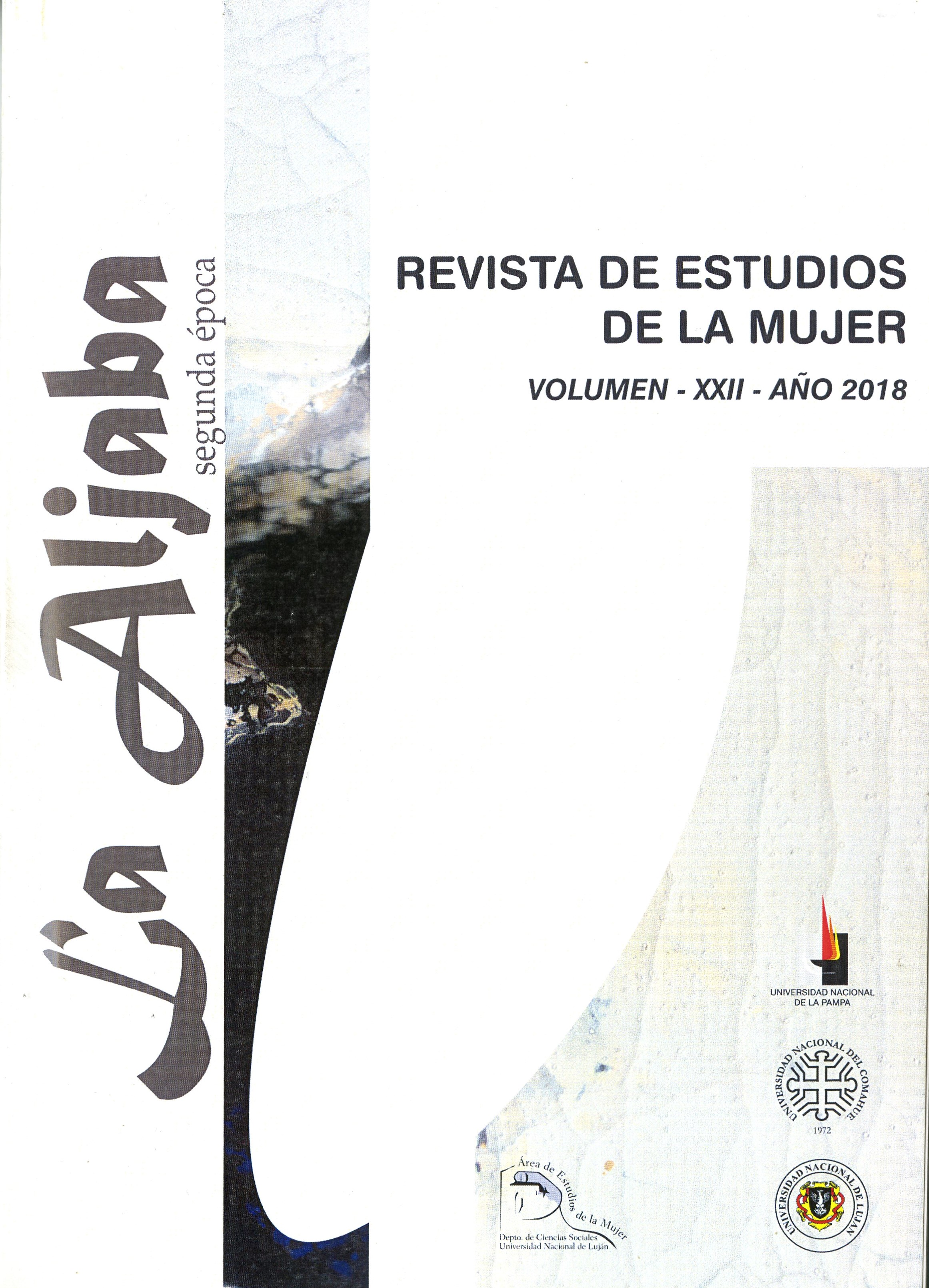Silence is not health: feminists and abolitionists voices “all of us are andrea”
Keywords:
feminist collective, gender, public agenda and politicsAbstract
14 years ago, Andrea López disappeared, a young victim of sexual exploitation by her partner. From that moment on, with numerous actions, some women began to claim and denounce the violence that Andrea suffered. It is necessary to draw a timeline that reflects the trajectory that women are developing to make violence visible. It seeks to recover the voice of women who, from evoking the memory of a young woman, publicly denounce the maneuvers of the patriarchal state. In the city’s public and political agenda, Andrea’s case was slowly included until it became public interest. Knowing the modes of intervention of this feminist collective and the social significance it means for women is a strategy of daily empowerment that this group promotes as gender claims, proposing as input the denunciation and public visibility in the local order with their actions. Las Andreas were able to influence numerous decisions of different institutions that had and have to intervene in the resolution of the case, this capacity was achieved through militancy and activism.
Downloads
References
ARCHENTI, Nélida (2003) Género y Ciudadanía: La representación como articulación social y política. En VI Congreso Nacional de Ciencia Política de la Sociedad Argentina de Análisis Político (SAAP). Universidad Nacional de Rosario, Rosario, Noviembre de 2003.
Campaña Abolicionista Nacional “NI UNA MUJER MAS VICTIMA DE LAS REDES DE PROSTITUCION”. http://campaniaabolicionista.blogspot.com/
Beatriz Di Liscia, María Herminia. (2007). Memorias de mujeres: Un trabajo de empoderamiento. Política y cultura, (28), 43-69. Recuperado 30 de mayo de 2018, de http://www.scielo.org.mx/scielo.php
BOBBIO, N. MATTEUCCI, N. PASQUINO, G. (1993) Diccionario de Política. SIGLO XXI Editores; México.
DI LISCIA, M. Género y memorias. Aljaba, Luján, v. 11, p. 141-166, dic. 2007 Disponible en http://www.scielo.org.ar/scielo.php. Accedido en 15 de junio 2018.
Di LISCIA, María Herminia B: “Mujeres en los movimientos sociales en Argentina. Un balance del último siglo”. En: Cuadernos de Estudios Latinoamericanos. Universidades Fernando Pessoa, 2008, pags. 141-180
Marta LOIS e Isabel DIZ ¿Qué sabemos sobre la presencia política de las mujeres y la toma de decisiones? Claves para un marco de análisis, Revista de Ciencias Políticas Volumen 46 - Otoño 2006, pp. 37-60 disponible en https://revistapolitica.uchile.cl/index.php/RP/article/download/17009/17732
DI LISCIA, M. (compiladora) (2012) Mujeres en La Pampa contemporánea. Ciudadanía, identidad y estrategias de vida. Buenos Aires, Miño & Dávila.
DI LISCIA M. (2014) Mujeres que dicen y hacen. Ciudadanía y memorias en La Pampa. Coedición EDULPam y Editorial Voces de la CPE.
GAMBA, S (comp.) (2009) Diccionario de estudios de género y feminismos. Biblos: Buenos Aires.
MOUFFE, C. (1993), "Feminismo, ciudadanía y política democrática radical", en: Debate Feminista, Vol. 7. México.
NIÑO CONTRERAS, L. (2006) Vicisitudes del capital social. Proceso de empoderamiento de las mujeres indígenas inmigrantes a Tijuana y San Quintín México Departamento de Editorial Universitaria Universidad de Baja California
Nota Plan B Noticias Diario Digital 2008
Revista URBANA
Nota periodística 06/02/2017 Diario Textual.
REVILLA BLANCO, M. (1994) Movimientos sociales, acción e identidad. Revista Zona Abierta Nº69 Editorial Pablo Iglesias, Madrid.
PEKER L. Suplemento Las 12 La busqueda no muere nunca 25 de febrero 2011 https://www.pagina12.com.ar/diario/suplementos/las12/13-6346-2011-02-25.html


















4.jpg)




